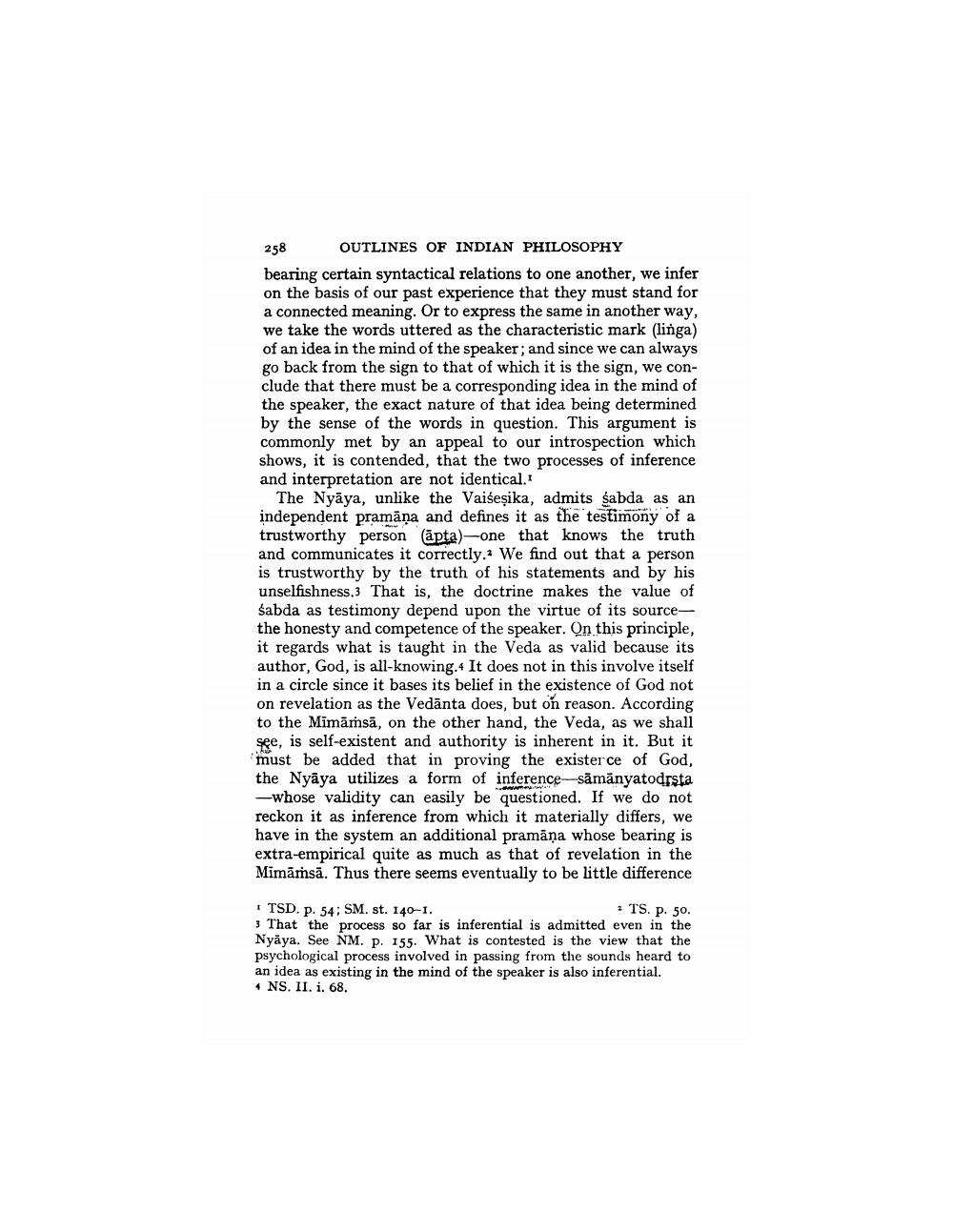________________
258 OUTLINES OF INDIAN PHILOSOPHY bearing certain syntactical relations to one another, we infer on the basis of our past experience that they must stand for a connected meaning. Or to express the same in another way, we take the words uttered as the characteristic mark (linga) of an idea in the mind of the speaker; and since we can always go back from the sign to that of which it is the sign, we conclude that there must be a corresponding idea in the mind of the speaker, the exact nature of that idea being determined by the sense of the words in question. This argument is commonly met by an appeal to our introspection which shows, it is contended, that the two processes of inference and interpretation are not identical.
The Nyāya, unlike the Vaišeşika, admits sabda as an independent pramāņa and defines it as the testimony of a trustworthy person (āpta)-one that knows the truth and communicates it correctly. We find out that a person is trustworthy by the truth of his statements and by his unselfishness.3 That is, the doctrine makes the value of Sabda as testimony depend upon the virtue of its sourcethe honesty and competence of the speaker. On this principle, it regards what is taught in the Veda as valid because its author, God, is all-knowing. It does not in this involve itself in a circle since it bases its belief in the existence of God not on revelation as the Vedānta does, but on reason. According to the Mimāmsā, on the other hand, the Veda, as we shall see, is self-existent and authority is inherent in it. But it must be added that in proving the exister ce of God, the Nyāya utilizes a form of inference-sämänyatodrsta -whose validity can easily be questioned. If we do not reckon it as inference from which it materially differs, we have in the system an additional pramāņa whose bearing is extra-empirical quite as much as that of revelation in the Mimārsā. Thus there seems eventually to be little difference
1 TSD. p. 54; SM. st. 140-1.
TS. p. 50. 3 That the process so far is inferential is admitted even in the Nyāya. See NM. p. 155. What is contested is the view that the Psychological process involved in passing from the sounds heard to an idea as existing in the mind of the speaker is also inferential. - NS. II. i. 68.




